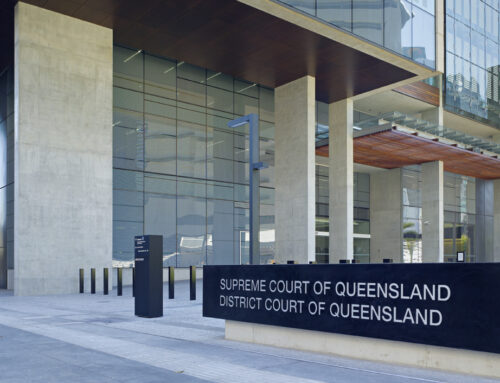Trevor and Lorraine had decided to open their own travel agency in a shopping centre in Redcliffe. They had both had extensive experience in that type of business as employees and were excited at the prospect of establishing their own business.
The premises had become vacant after another business had closed down. After contacting the letting agent and negotiating terms they were presented with a lease which they were informed was a straightforward document used by the landlord in all of his leasing arrangements.
They perused the lease which was 23 pages long and full of legalise. Despite this, they decided that rather than add to the cost of setting up their new business, they would not engage a solicitor to advise them in relation to the lease. They were more concerned with fitting out their premises and buying the shiny new furnishings than guarding against unforeseen pitfalls contained within the lease document. They signed on the dotted line and commenced business in June 2015.
Trevor and Lorraine were oblivious to the fact that their lease was a retail shop lease and that the landlord had obligations to present them with a disclosure statement and a draft of the lease at least seven (7) days prior to the execution of the lease. That Act also necessitated Trevor and Lorraine obtaining financial advice and legal advice reports prior to executing the lease. The Act makes specific provision allowing Trevor and Lorraine to terminate the lease within six (6) months after entering into the lease as a result of the landlord’s non-compliance with the relevant legislation. Without taking proper legal advice Trevor and Lorraine would potentially have no idea of their legal rights.
When negotiating the lease the agent had represented to them that it was a “gross lease” which meant that outgoings were included in the annual rental. This should have been disclosed in the landlord’s disclosure statement. However, as we know, the landlord did not comply with the provisions of the relevant legislation. In a “net lease” situation tenants are liable for a pro-rata share (each tenancy floor area divided by the total floor area of the building) of the total cost to the landlord of operating the building. Often with gross lease situations however, there is usually a clause permitting landlords to recover a pro-rata share of any increases in the outgoings after the commencement of the lease. The lease signed by Trevor and Lorraine contained such a clause thereby making Trevor and Lorraine liable for increases in outgoings including increases in statutory costs such as land tax (which pursuant to the Retail Shop Leases Act is an outgoing which cannot be demanded of a tenant) and local authority rates and taxes, building management costs including management fees, maintenance costs in respect of lifts including plumbing and general repairs, the cost of energy and electricity for common areas as well as for lifts and air conditioning and insurance costs.
Increases in outgoings such as those listed can be significant over the term of the lease and unsuspecting tenants will have to make adjustments to their budgets if they are caught out. If a lease is presented as a “gross lease” then it is not truly that if a clause is included which makes the tenant responsible, on a pro-rata basis, for any increases in the landlord’s outgoings. An experienced solicitor would certainly bring this to the tenant’s attention before signing off on the lease. If the landlord could not be persuaded to remove the offending clause, thereby rendering the lease to an actual “gross lease” status, then the solicitor would at least ensure that the clause was amended so that it was applied fairly.
If the rental in the initial year is a gross rental then it is meant to cover the landlord’s outgoings applicable at the commencement of the lease. If the rental for each subsequent year is increased by a nominated percentage, as if often the case, then the increased rental for years 2, 3 etc will have built into them a percentage increase in the outgoings component included in the rental for the initial year. It follows then that an adjustment in the amount the tenant has to pay for pro-rata increases in outgoings should be adjusted downwards for they had already included percentage increase in the annual rental.
Our team at Cooke & Hutchinson is very familiar with the nuances of gross leases and net leases and the provisions of the Retail Shop Leases Act and will ensure the best possible outcome for a tenant when entering into a retail shop lease or commercial leasing arrangement with a landlord. Contact us on 07 3284 9433 or info@cookehutchinson.com.au.





